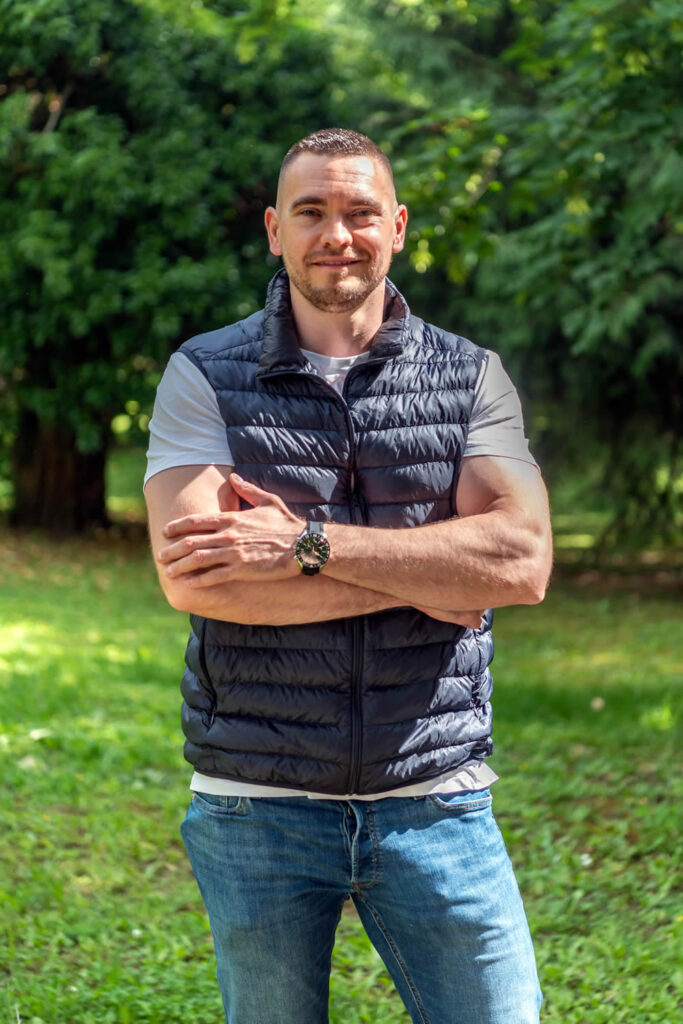Interview with Zoltán Listár (technical manager)
“The education was very practice-oriented, and from a professional point of view, I can still build on the financial and management knowledge I learned here.”
Interview with Zoltán Listár (technical manager, BMW)
(The 19th part of the alumni interview series.)

- At which company and in what position do you work?
I currently work at BMW in Munich, where I design and implement the inventory management system for a new production hall.
- What was your motivation when you chose our university or its predecessor institutions?
Before the Budapest University of Technology, I tried another degree course at another university, but I didn’t find what I was looking for. At Alba Regia University Centre (AREK), I liked the technical management course because it combined business and technical knowledge.
- Which of our predecessor institutions did you study at? Which degree(s) did you obtain?
I started at the Budapest University of Technology, but I graduated in 2012 from Óbuda University with a degree in technical management. In 2011, I was awarded an Erasmus scholarship to the Wildau College, where I also completed an internship semester. At that time, there was a very close cooperation between AREK and Wildau College. Every year I had visiting professors from AREK, Prof. Michael Hendrix, Prof. Ulrike Tippe, who is now the rector of Wildau College, Prof. Thomas Biermann and Prof. Thomas Forster. After completing the BSc, I went back to Wildau and completed the Master of European Management in English from 2012-14. Interestingly, from there I went to Lithuania for an Erasmus semester.
- Did you have a teacher you looked up to? What message/perspective/knowledge did he or she enrich you with?
We have had many good teachers, but I would like to highlight Dr. Valeria Varga, who taught Finance and Business Economics, and Gábor Fejes, who taught us Entrepreneurship.
- Can you recall your first memory of the university?
Freshers’ camp was sensational, and afterwards I really liked the family atmosphere of the Institute. Our group was a very close-knit team.
- Did you get any life lessons from the university?
Yes, although the institution is student-friendly, our teachers demanded discipline, quality, and deadlines from us on a daily basis. The teaching was very practical, and I can still draw on the financial and management skills I learned here today.
- Did you find time for fun alongside your studies? How were your student years at university?
The student under the leadership of Sanyi Cservencsik worked very well. There were parties and study nights, student life was very good.
- Can you describe what you liked most about university?
Most of all, the close-knit community. We looked out for each other; we helped each other with our studies. There were no dropouts.
- Did you have time to have fun in addition to studying? What were your university years like?
The student council worked very well under the leadership of Sándor Cservencsik. There were parties and special events, student life was very good.
- Can you describe what you liked most at the university?
Mostly the close-knit community. We paid attention to each other, helped each other in learning. Attrition was not typical.
- What opportunities do you see in today’s higher education?
Based on my own experience and my career so far, I consider internationalization to be very important. Globalization continues, you must be open to new technologies. I consider it important to gain international experience. The advantage of higher education in Germany is that it is free.
- Would you have any advice for today’s youth on how to choose a university/career for themselves?
You must find the motivating factors that bring you joy in life.
- Would you like to recall a memorable moment that connects you to our university?
For me, the graduation ceremony was very touching.
- To what extent can you use what you learned at our institution at your workplace?
The theoretical foundations acquired at the University are very good and important. The practical experiences could be built on this. However, the world changes constantly and very quickly, so constant learning is necessary. I would especially emphasize the importance of language learning. In my case, too, it was very useful to be able to start out in the world with a good command of English, in addition to German.
- Did you want to work in this profession even as a child, or did you have other “career dreams”?
At first, I was interested in IT, but then I went in the direction of logistics.
- With your degree in hand, what were the first few steps you took to further your career?
After completing my master’s degree, I participated in an internship program at Schnellecke Logistic AG in the field of international logistics between 2015-16. During this time, I worked for VW in Leipzig and Dresden, as well as in South Africa, and then in Wolfsburg. I then got a job at BMW in Munich as a logistics consultant. Between 2017-2022, I worked at the BMW factory in the city of Shenyang, China. I returned to Germany in 2022 because BMW started producing electric cars in Leipzig. Here I dealt with inventory management and storage. Since 2023, I have also been working in Munich at BMW.
- Did you have a sponsor who helped you at the beginning of your career?
Professor László Ungvári, the rector of Wildau College at the time, helped me a lot, especially in choosing my first job. We keep in touch to this day. I haven’t lost contact with Hungary either, I can usually visit home 3-4 times a year. My long-term plans are related to BMW’s expected developments in the USA, and it is possible that I will return to China as well. I have received several jobs offers at the moment.
